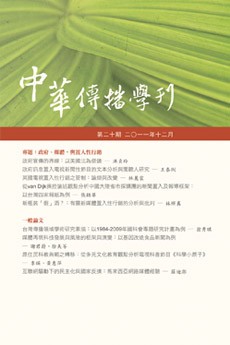 閱覽人數: 40
閱覽人數: 40
December
2011
No. 20
政府、媒體,與置入性行銷
Government, Media, and Product Placement頁數:3 - 24
作者(中)
洪貞玲
作者(英)
Chen-Ling Hung
關鍵詞(中)
政府宣傳、美國、資訊公開、置入性行銷
關鍵詞(英)
government propaganda, U.S., disclosure of information, product placement
中文摘要
本文主要目的為分析美國限制政府宣傳的法制,作為我國借鏡。
本文提出三個問題:美國限制政府不當宣傳的法令內容為何?當政府不當宣傳遭揭露後,主管機關如何處理?我國目前修法與美國法令有何異同、該如何補強?為回答上述問題,論文章節分為三部分,依序介紹美國限制政府不當宣傳的法令、從兩大案例檢討美國執法經驗、接著分析美國經驗的良窳並進一步檢討我國現行法令。本文最後提出結論,建議我國有必要仿效美國,從規範政府宣傳源頭與管道齊頭並進,完備《預算法》及廣電三法等相關法令的修法工作。主要修法方向有以下幾點:定義政府宣傳及其類型、規範政府違法責任與究責程序、規範媒體應揭露出資資訊及揭露方式、區別媒體業者與工作者的責任歸屬等。
本文提出三個問題:美國限制政府不當宣傳的法令內容為何?當政府不當宣傳遭揭露後,主管機關如何處理?我國目前修法與美國法令有何異同、該如何補強?為回答上述問題,論文章節分為三部分,依序介紹美國限制政府不當宣傳的法令、從兩大案例檢討美國執法經驗、接著分析美國經驗的良窳並進一步檢討我國現行法令。本文最後提出結論,建議我國有必要仿效美國,從規範政府宣傳源頭與管道齊頭並進,完備《預算法》及廣電三法等相關法令的修法工作。主要修法方向有以下幾點:定義政府宣傳及其類型、規範政府違法責任與究責程序、規範媒體應揭露出資資訊及揭露方式、區別媒體業者與工作者的責任歸屬等。
英文摘要
This study analyzes U.S. regulations on government propaganda, and provides suggestions for Taiwan. This paper focuses on the following three main questions: What are the U.S. regulations against improper government propaganda? How does the U.S. government rectify this problem? What is the difference between Taiwan and the U.S. on government propaganda regulations? To address these questions, this paper is divided into the following three sections: (1) an introduction of U.S. regulations on government propaganda; (2) a review of two significant cases that demonstrate how the U.S. government investigates and rectifies inappropriate propaganda; and (3) an analysis of the strengths and weaknesses of U.S. regulations. A comparison between the relevant regulations in Taiwan and those in the U.S. is also preformed. Finally, this study concludes with suggestions for how the Taiwanese government can further revise laws to ensure that regulations on government propaganda are comprehensive. Amendments to related laws should include the following: (1) defining government propaganda and categorizing the different features of propaganda; (2) developing a penalty for violating the laws; (3) requiring the media to disclose sponsor information; and (4) defining the social responsibility of the media and its workers.